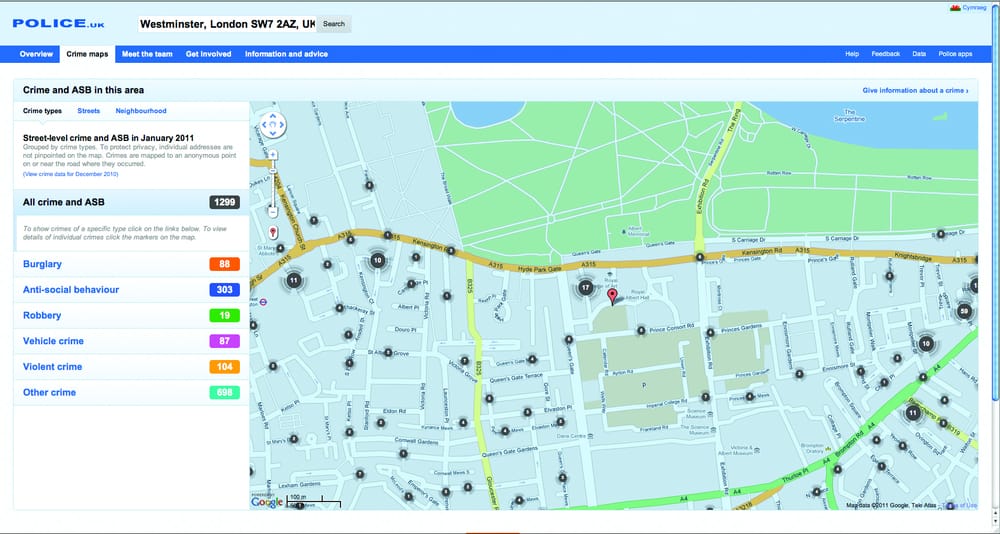Crime on your street mapped
Police.uk throws up little in the way of surprises

Two burglaries and a case of vehicle crime – not your an average night out in a rough part of London, but a description of the crime in my street in the last month according to the police’s latest initiative, www.police.uk. The site, which allows you to enter a postcode and retrieve detailed crime statistics for the area, has been a massive success, receiving 400m hits in the two months it’s been online.
The site is a coordinated effort by various government departments and has been hailed by ministers as a step towards greater transparency with regards to the working of your local police force. In addition to providing a localised crime map, it also offers local police force information and a list of events being held by the police in the area.
The site throws up little in the way of surprises; the Imperial-infested and expensive south-west of London is remarkably safe. Albertopolis itself is devoid of any crime, with the worst you should be expected to endure is a case or two of the one-fits-all ‘anti-social behaviour’, something that you’re probably used to at Imperial in any case.
The site throws up little in the way of surprises; the Imperial-infested and expensive south-west of London is remarkably safe
The site has been surprisingly divisive, however, with many people questioning the point in releasing crime data for individual streets. Beyond the voyeuristic pleasure of scouring some of London’s seedier neighbourhoods, there is little that the information offers that wasn’t publicly available a few months ago, and almost no functionality apart from it either. While it’s certainly healthy fuel for paranoia, there is also little you can do to get involved beyond staring at you screen; there is no way to provide feedback or suggestions to your local police force through the site.
This lack of apparent purpose has led many to question whether the government really had to spend £300,000 on the project. Software architect Rob West took it upon himself to churn out a virtually identical website on the evening of the site’s launch, managing it in roughly 8 hours.
Supporters of the site are overwhelmingly positive about it’s performance however, and the numbers seem to agree that whatever the reason, the website has managed to tap into our natural curiosity. It is hoped that the effort will put pressure on local police forces to deal with crime better, and allow residents to lobby for a better presence in more troubled areas.
The site is just the latest measure in the government’s continuing effort to bring data and transparency in their dealings to the public. Driven by the central hub of data.gov.uk, datasets released to the public include the ‘Compendium on Motorcycling Statistics’ and the ‘Survey of Vegetables and Flowers’. The idea is to bring accountability to the government’s actions as well as allowing interested parties to analyse and present the data in ways the government may not have thought of.
Despite some very interesting figures having come out of the release of the data, there are still many questions regarding privacy that have yet to be answered. The government contracts a large amount of work out to private companies, and it’s a matter of debate whether they are required to be as transparent.
The government doesn’t have a great track record so far when it comes to opening up data to developers either. TfL’s London Underground API (which should allow users to create websites and apps for phones) is notoriously unreliable. Its basic functionality has been withdrawn unexpectedly multiple times over the last few years, much to the chagrin of developers who depend on it for their apps. With the police.uk website going down on the day of its launch as well, it’s clear that while transparency may be the order of the day, it’s meaningless if the data is stuck on a server in a back office in central London.
Head on over to the crime map to stare in horror at the nearest case of violent crime; I personally find the Compendium of Motorcycling Statistics gets me off faster.









